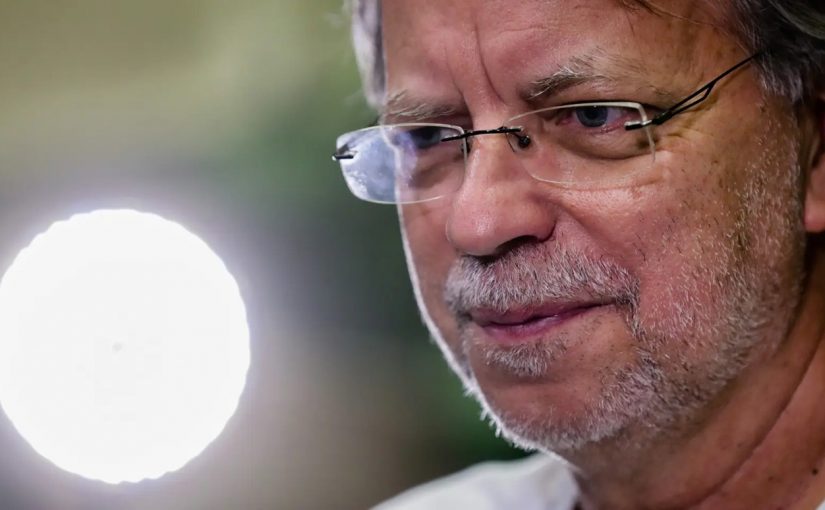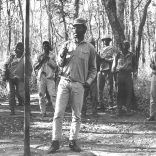Architectural changes could jeopardise Mozambique Island’s UNESCO status, government warns
Mozambique: People need to know who is attacking Cabo Delgado – Mia Couto

File photo: Lusa
Writer Mia Couto expressed his concern on Wednesday that Mozambican public opinion does not have a clear answer about the identity and origin of the insurgents attacking the northern province of Cabo Delgado, calling for answers.
“My concern is that Mozambican public opinion has so far not had a clear answer about the identity of who they are or where they come from, and, therefore, the origin of the rebels who have been attacking the province since 2017. It’s obvious that all Mozambicans are in solidarity, are united to fight this aggression and are in solidarity with the commitment of our soldiers in this fight,” said Mia Couto, in an interview with Lusa.
The writer even called for more information about what is happening to mobilise Mozambicans in the fight against the violence affecting the province.
“What worries me as a citizen is that we don’t understand what’s going on. Who is there, who are they, what do they want, what is their relationship with the population, what is their main route of entry: the religious narrative, the creation of an Islamic state, the maintenance of corridors for drug trafficking and the work of organised crime, as has already been said,” he asked.
“I understand that these issues require strict secrecy because they are a matter of national security. But we know that the deep and lasting solution is not a military one. So we need to get civil society more involved in understanding what’s going on, added the writer, who this week launched the “Coleção Gosto de Ler” project in Maputo, an initiative by Standard Bank in partnership with the Fernando Leite Couto Foundation, which aims to distribute 25,000 copies of books by five authors to the country’s libraries, as well as João Paulo Borges Coelho, Paulina Chiziane, Lília Momplé and Albino Magaia.
Since October 2017, the province of Cabo Delgado, in the north of the country, which is rich in gas, has been facing an armed rebellion with attacks claimed by movements associated with the extremist group Islamic State, with a new wave of attacks, especially in the district of Chiúre, starting in the last week of July, which has caused more than 57,000 displaced people, according to organisations on the ground.
For Mia Couto, the government must continue to focus on combining a ‘military and social’ response, which includes policies that promote inclusion, employment and hope for a better life among young people in the response to this conflict.
“I don’t think you can separate the military response from humanitarian intervention. That would be a mistake for me. In other words, each of our soldiers must also be a humanitarian agent, a promoter of respect and human solidarity. Soldiers who are in the field show that they are brothers and sisters of the peasants and that they are there to give their lives not only for a cause that is national sovereignty but which is, first and foremost, the protection of the lives and property of people who already have so little,” he defended.
“I’m sure our soldiers know that they can never inspire fear in the population. The only people who should be afraid are the terrorists,” he said.
Mia Couto was born in Beira, Mozambique, in 1955. He was a journalist and teacher and is currently a biologist and writer.
In the same statements, the writer rejected associating these attacks with religious aggression or the poverty experienced in that region, as happens in other countries, arguing that if this were the case, it would have spread to other provinces.
“I worked for years in Mocímboa da Praia (…) and it was clear to me that there was a complete absence of the state, we’re talking about 15 years ago. The state was absent. Most people knew about the world because they listened to Tanzanian radio; most of the peasants had closer ties to Tanzania than to Maputo. Maputo, which for them is another country, another world,” said the writer.
Despite the upsurge in attacks in recent weeks, Mia Couto is not betting on the viability of a negotiation with this armed group.
“It’s very difficult to negotiate when you don’t know who they are and what their intentions are. Apparently, the terrorists’ base is of a religious and fundamentalist nature that accepts no authority other than divine authority. Of course, this narrative is a disguise for other, much more mundane intentions and interests in appropriating territory and wealth,” he concluded.
At least 349 people died in attacks by Islamic extremist groups in northern Mozambique in 2024, an increase of 36% on the previous year, according to a study released in February by the Africa Centre for Strategic Studies (ACSS).












Leave a Reply
Be the First to Comment!
You must be logged in to post a comment.
You must be logged in to post a comment.